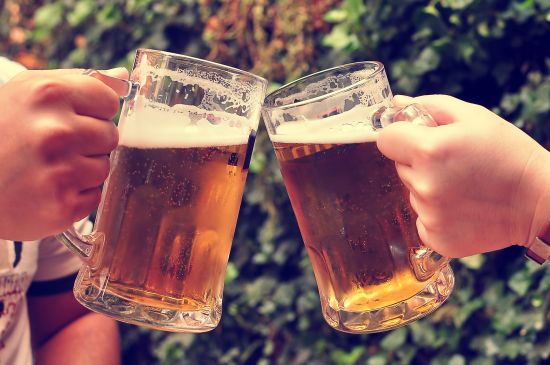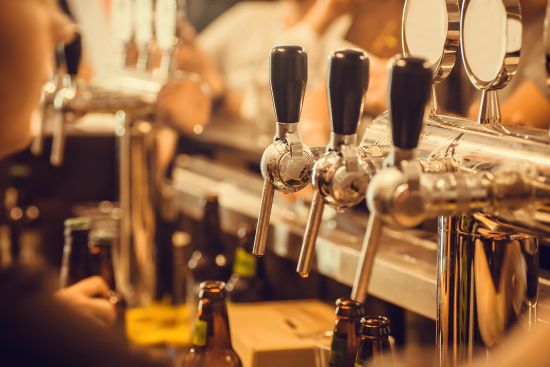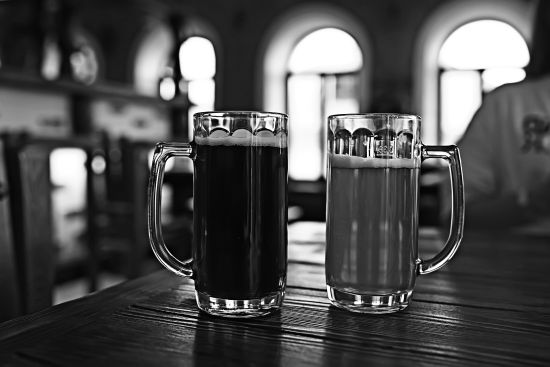This year will be the 15th that the head of the Department of Sociology at Charles University Jiří Vinopal has headed a famous survey mapping changes in Czech pubs and pub life. Learn how the Czech pub itself was reinvented, what it meant for classic lowly establishments known colloquially as “čtyřky” (No. 4s), and how the social aspect of pub life changed.
I began by asking him about the role played by pubs today.
“The pub is certainly important in Czech life but I would say over the last few years it no longer holds the central position it once did. There were periods when pubs played a very important role, not least under socialism when there were far fewer choices, especially in villages, where people could meet. There were fewer opportunities, fewer cultural options, so then pubs played a far more crucial role.
“That has been changing now for more than 10, 15, or 20 years: the pub is not the dominant feature of Czech life it once was.”
People have more options now but in one interview you mentioned that the coming of new franchises 10 or 15 years ago changed the landscape quite a bit. Are these franchise venues even Czech pubs based on earlier definitions?
“They are and franchises have tried to build on that tradition. They just wanted to take the concept and modernize it a bit. They have had an impact and improved services across the sector a great deal.
“They changed the image of Czech beer before it was associated with smoky rooms and cheaper dingy pubs where tablecloths had splashes of yesterday’s soup. They were designed for a more middle or even upper-class client and so the services were greatly improved. Overall hygiene in the bathrooms, the quality of food or the beer, as well as the behavior of waiters, was greatly improved.
“There was nothing wrong with that although, curiously the success of the first franchise pubs inspired many imitators and many of those stuck to a similar model, creating a kind of uniformity that itself has now gotten a little tired or old. They are all kind of the same and I think are themselves out of steam. People who are founding new mini breweries now or pubs are again going a different route: to be different and to push the concept in a different direction again.”
In the past, under the old regime, there were different ratings for establishments and the worst was the so-called ‘čtyřka’ or No.4. But for a lot of people that is what comes to mind when talking about Czech pubs. There are still I guess enough of these around if you go looking for them?
“There were both good and bad things about those pubs. On the one hand, they were the cheapest and were classified as such under a system under communism: there was nothing lower. That classification meant the lowest prices but also set rules for the kind of amenities such establishments should have or even what kinds of meals could be offered on the menu. For example, there was a rule in many cases that they could not heat or cook food but only serve cold meals.
“At the same time, such pubs became a magnet for the heaviest drinkers. Not necessarily the lowest on the social ladder, but certainly those for whom beer drinking was a way of life and who spent hours and hours in the pub.
“No. 4s were the most widespread types of pubs and people from all walks of life met there. Everyone knew these kinds of pubs, you would find them often at railway stations, for example. Paradoxically, at railway stations pubs were officially dvojky – No. 2s – but very often these were the same kinds of venues as No. 4s. The clientele was largely the same.
“Because it was the dominant type of pub, there is a kind of nostalgia associated with it today. It became known as the typical Czech pub: not too clean, full of cigarette smoke, where one beer after another was consumed.”
We mentioned that all kinds of people went to these pubs and some of them of course were popular with the Czech intellectual underground, often heavy drinkers themselves…
“That is absolutely the case. They were all 4s but they differed based on what was being discussed: so more underground locales you would have different discussions than pubs in some villages – and I don’t mean this pejoratively – where workers from the local JZD farming cooperative would gather to have a beer or two but stayed until closing.”
Lifestyles were certainly far different under communism – what people ate, how much they drank… as a teenager, when I travelled through communist Czechoslovakia, I was surprised to see that there were pubs that had their own identity. One I saw somewhere near Karlštejn outside Prague, had murals with scenes from the Wild West and other American icons for example. Cowboys and buffalo. And it struck me that many of these venues had their own identities despite a general uniformity from above. Has the history of unusual pubs from those days or later been mapped?
“At one time or another I have come across books, articles, student papers or bachelor’s theses mapping such sites and it is fascinating, more cultural anthropology. These pubs show that even if all pubs were rated one number, they retained specific identities often based on local traditions. You had so-called tramping community pubs, firefighter pubs, football or other amateur sport team pubs where you would see dozens of trophies on display behind the counter. Fisherman or hunters’ pubs.
“Establishments were rooted in their own local history, even across a city like Prague. You had a look around and you became aware of that. Such histories are valuable because they help us understand what the Czech pub was and that certainly they were not all the same. They weren’t all ‘dives’.”
The quality of the beer under communism was also very different, when it came to smaller breweries around the country, right?
“Yes, most certainly. New technology, new approaches and certainly much stiffer competition mean that the quality of beer itself is much, much higher today than it was in the past. I was too young to drink beer under socialism but from what I learned there were all kinds of factors when it came to smaller brewers – poorer ingredients available for example – which meant that some breweries around the country made really poor beer. And they got a reputation which was hard to shake. Today the difference in quality is night and day.”
How long now have you been doing sociological surveys of Czech pubs and pub life?
“We began in 2004 and we have conducted our survey every year since. We do it every September and this year is the 15th inception.”
What would you say was the biggest takeaway or trend over the years?
“The disappearance of the social aspect. It is also connected to the beer. Nowadays more and more beer is sold in bottles and cans and people stopped going to the pub as often. They also have many more opportunities than before and so the pub itself changed and is no longer needed for regular social contact. People don’t feel the need to go there to talk to their friends, or even strangers, as much. That has changed the pub’s character.”
It also seems that more and more people are spending time ‘elsewhere’: they might be there physically but their phones and social apps mean they are simultaneously in an entirely different space online…
“This is an aspect we haven’t looked at in the survey but it is a fascinating one. It’s not only the pub that is affected but even something like family life… There is a continuing debate about whether connections online weaken or strengthen social ties.
“It’s true that is seems strange when you have a group of people at a table and they only exchange a few words the whole night. Meanwhile two are online and communicating with people somewhere else, and two others ate the table might be secretly communicating with each other in different platforms! It is strange that they even come to pubs at all.
“But groups of students in the hall or café at university are also doing the same. So it is a form of communication they are used to, that they need, yet they still have a need of course to meet in person and communicate face-to-face. Even if you talk for only half the evening, it’s still better than nothing, I think.”
Years ago I frequented a pub where there was a regular who only ever read these massive books. So even in the old days, not everyone communicated much, I guess! Before my time, pubs also used to be a place where politics were often discussed…
“I stopped asking about politics after 2004 because it became very clear the one thing no one in the pub wanted to talk about anymore was politics. We will probably bring it back for our 15th sort of jubilee survey but people who go to the pub now want to leave politics alone. They talk about other things: personal relationships, familial problems, jobs, and of course sports.”
There are varying socio-economic factors I suppose but how do you classify the unfortunate Czech villages that don’t have a single pub? That’s rather sad, isn’t it?
“Sure some villages suffer that fate. Factors include a poor mix of local and holiday inhabitants where a critical line is crossed and it just isn’t financially viable to keep the pub open anymore. Thinking about why a village has no pub can lead to a kind of micro-level analysis about individuals who make a difference or are socially innovative.
“In the case of a small village the situation can look dire but often all it takes is the effort of one individual who wants to make a difference. One person, who doesn’t need to run a pub for a living, for example, but thinks there should be one there.
“One person who doesn’t care if only one other person is sitting there all evening but still gets a kick out of it. There can be multiple impulses, a firefighter wants to revive a former meeting place and goes for it.
“Villages which slip under the point of no economic return lose their pub and that is sad but one individual can come along and turn things around. The only question is, how long will the wait be? Sometimes it’s a pizzeria, sometimes it’s a pub. All it needs is for the right person to turn up.”


















